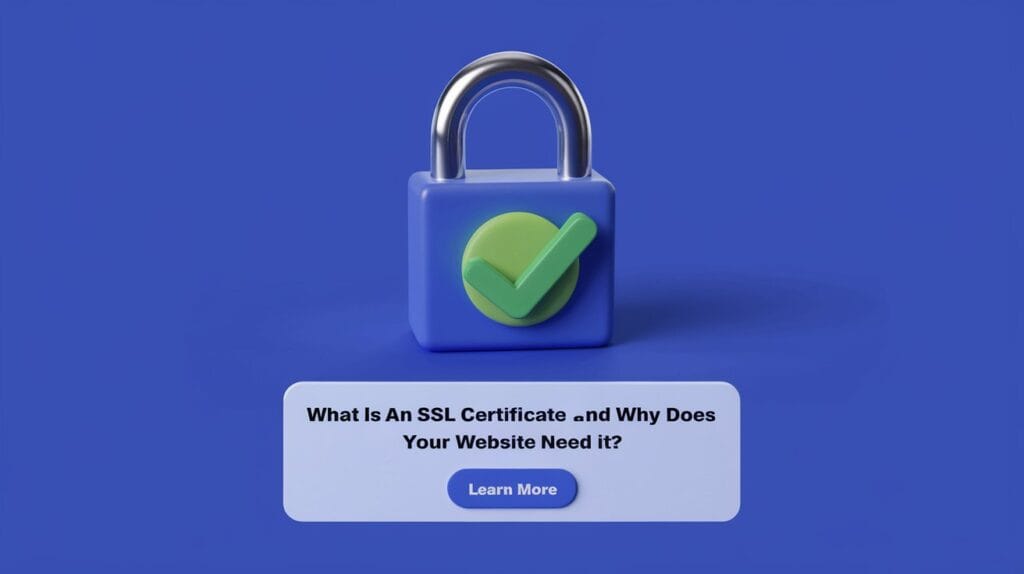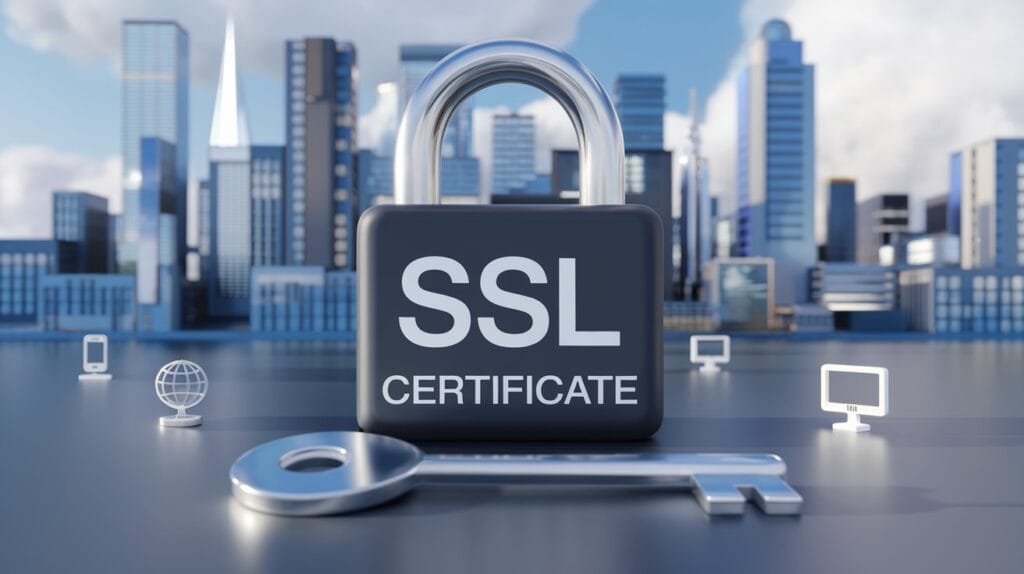What is an SSL Certificate and Why Does Your Website Need It?

In an increasingly digital world, online security should be a top priority for any website owner. But what is an SSL certificate and why does your website need it? Understanding the role of SSL certificates is crucial for anyone involved in web design or managing a website. This guide will delve deep into the importance of SSL certificates and why they are essential for your website’s security and credibility.
What Is an SSL Certificate?
An SSL (Secure Socket Layer) certificate is a digital certificate that establishes a secure, encrypted connection between a web server and a browser. This encryption ensures that data transferred between the server and the user remains private and secure. You can easily identify a website that uses SSL by looking for “https://” in the URL, where the “s” stands for secure.

Why Does Your Website Need an SSL Certificate?
1. Enhanced Website Security
One of the primary reasons for implementing an SSL certificate is to enhance website security. By using encryption, SSL certificates protect sensitive information, such as login credentials, credit card details, and personal data, from potential cyber attacks like eavesdropping and data theft.
2. Building Trust with Users
Website visitors are becoming increasingly aware of online security threats. An SSL certificate signifies that your website is secure, which helps build trust with your users. When users see the padlock icon in the address bar, they feel more confident sharing their information on your site.
3. SEO Benefits
Search engines like Google use HTTPS as a ranking signal. Websites that employ SSL certificates are more likely to achieve higher search rankings compared to those that don’t. This means investing in an SSL certificate can indirectly boost your website’s visibility and traffic.
4. Compliance with Industry Standards
Various regulatory standards require websites to implement security protocols to protect user data. For example, Payment Card Industry Data Security Standards (PCI DSS) mandate that e-commerce sites must secure their transactions using SSL. By ensuring your site’s compliance, you can avoid potential legal issues and fines.
How to Obtain an SSL Certificate
Obtaining an SSL certificate is a straightforward process. Here’s how you can do it:
- Choose the Right Type of SSL Certificate: Depending on your website’s needs (e.g., individual vs. multiple domains), select the appropriate type of SSL certificate.
- Purchase from a Trusted Certificate Authority (CA): Select a reliable CA like Let’s Encrypt for free certificates or paid options like Comodo or DigiCert.
- Generate a Certificate Signing Request (CSR): This is a block of encoded text you send to the CA to apply for an SSL certificate.
- Install Your SSL Certificate: Follow your web host’s instructions for installing the certificate on your web server.
- Test Your SSL Certificate: After installation, check if your SSL certificate is working correctly using tools like SSL Labs’ SSL Test.
Types of SSL Certificates
Different types of SSL certificates cater to various website needs:
- Domain Validated (DV) Certificates: Basic level of validation; ideal for blogs and small sites.
- Organization Validated (OV) Certificates: Includes additional verification, suitable for businesses.
- Extended Validation (EV) Certificates: Highest level of validation; presents a green bar in the browser, often used by e-commerce sites.
- Wildcard Certificates: Secures multiple subdomains under one domain.
- Multi-Domain Certificates: Secures multiple different domains within a single certificate.
Common Misconceptions About SSL Certificates
- SSL is only for e-commerce: While e-commerce sites significantly benefit from SSL, all websites should be secured to protect user data.
- SSL certificates are expensive: There are free options available, such as Let’s Encrypt.
- SSL certificates slow down my website: Properly implemented SSL does not significantly affect site speed; instead, it can sometimes enhance performance.
Conclusion
Understanding what an SSL certificate is and why your website needs it is foundational for ensuring website security. Not only does SSL provide enhanced security and build user trust, but it also comes with SEO benefits and ensures compliance with industry standards. If you’re considering improving your website’s design, ensuring that it is secure with an SSL certificate should be at the top of your list.
For more insights on website security, check out our blog on Website Security Best Practices. If you have any questions or need help implementing an SSL certificate, feel free to contact us or leave a comment below!

